This post may contain affiliate links. Please read my privacy policy.
Peking Pork Chops, or 京都排骨 (jīngdū páigǔ) in Mandarin, offer a perfect blend of flavors. Tender pork meets sweet, tangy, and smoky Peking sauce for a truly irresistible dish. It's a satisfying meal packed with flavor!
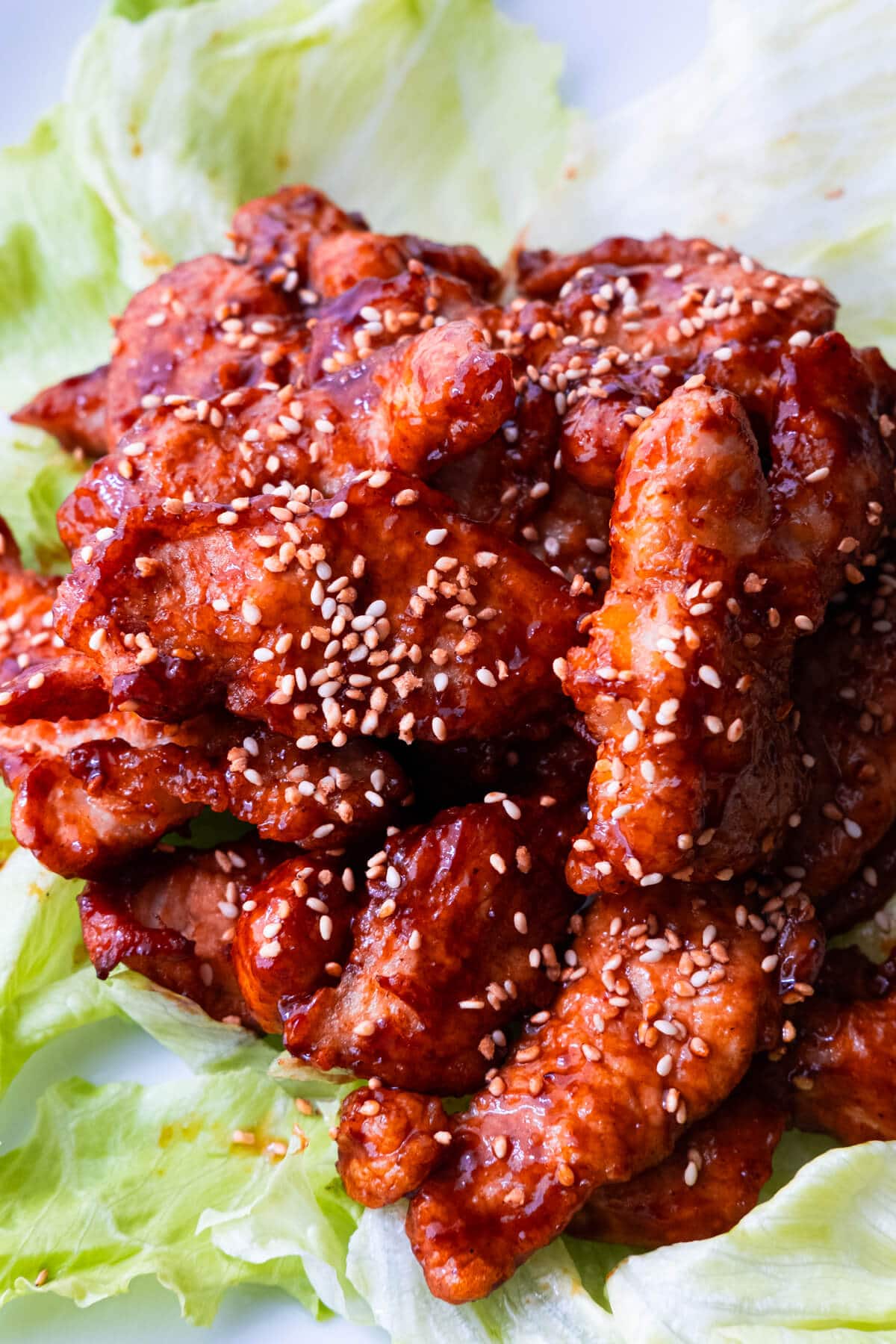
Chinese Pork Chops
I adore pork chops—such as baked pork chops, grilled pork chops and boneless pork chops.
Today, I’m excited to share one of my favorite Chinese recipes for pork chops: Peking pork chops.
Peking pork is known as Jing Du Pork or 京都排骨 (jin du pai gu), this dish is perfect for everyday meals or special occasions like Chinese New Year.
Peking pork chops are delicious, combining juicy pork with sweet and tangy Peking sauce. They’re a crowd favorite in Chinese cuisine.
Why This Recipe Works
Here are the reasons why my recipe is perfect for you:
- Flavorful Sauce: The sauce infuses the pork with delicious sweet and tangy flavors, enhancing its taste.
- Tenderizing Technique: My secret technique makes sure the pork stays juicy and succulent during cooking, with a tender texture.
- Easy Recipe: The recipe is straightforward and easy to follow, making it accessible for cooks of all levels.
- Authentic Taste: As a best-selling Chinese cookbook author, I never compromise on authenticity when it comes to Chinese recipes.
Ingredients
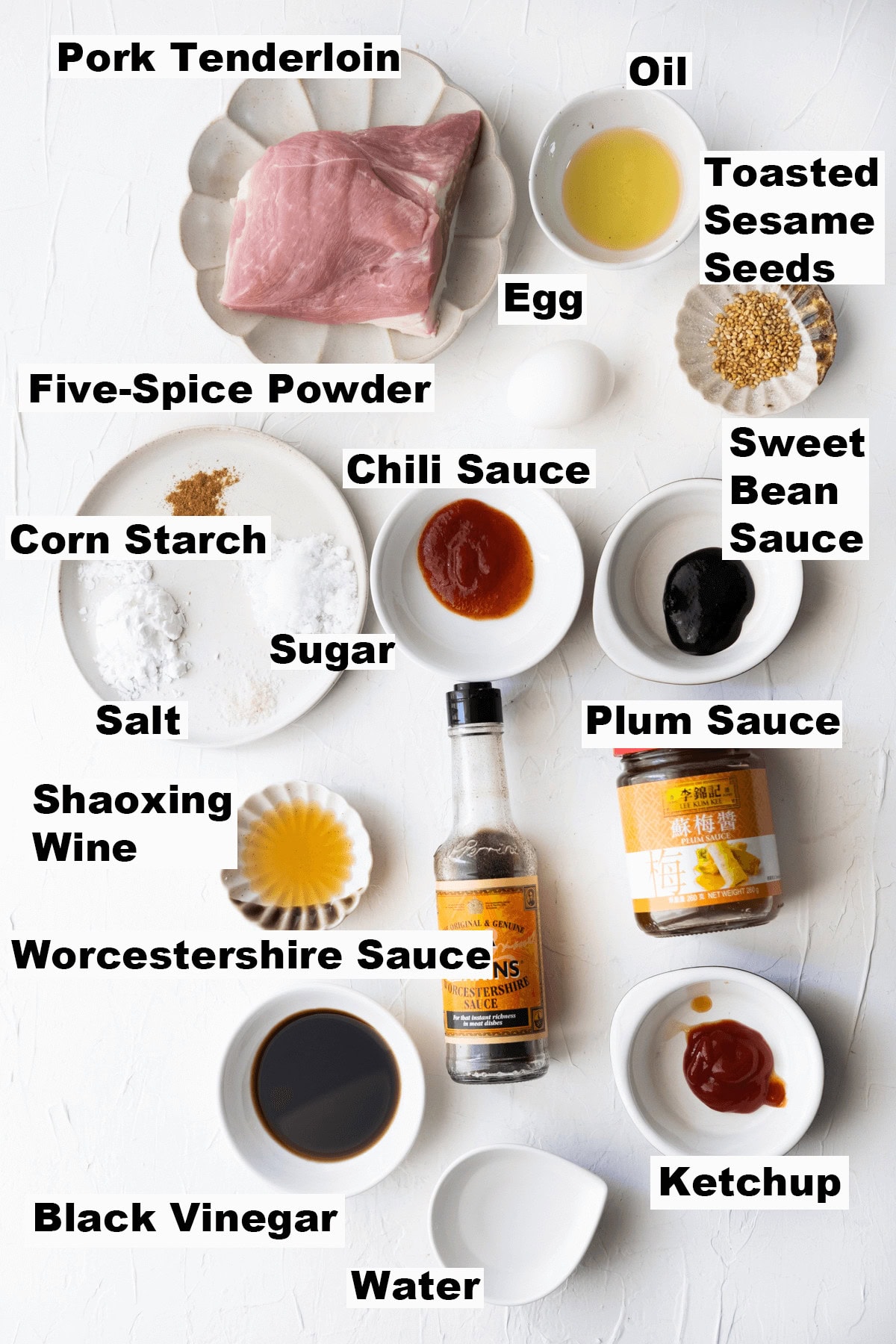
Peking style pork chop calls for the following ingredients: main ingredients, marinade and the sauce.
- Pork tenderloin or pork spare ribs – for meaty goodness, use pork tenderloin, or opt for pork spare ribs if you prefer a heartier bite.
- Egg
- Cornstarch
- Shaoxing wine – you can substitute it with Chinese rice wine, Japanese cooking sake, or dry sherry. If you cannot consume wine, skip it altogether.
- Tomato ketchup
- Plum sauce – the secret ingredient that lends that iconic tartness to the sauce.
- Sweet bean sauce – use hoisin sauce if sweet bean sauce is not available.
- Worcestershire sauce – adds a punchy umami flavor to Peking sauce.
- Black vinegar – use Chinese Zhenjiang black vinegar.
See the recipe card for full information on ingredients.
The Best Peking Sauce
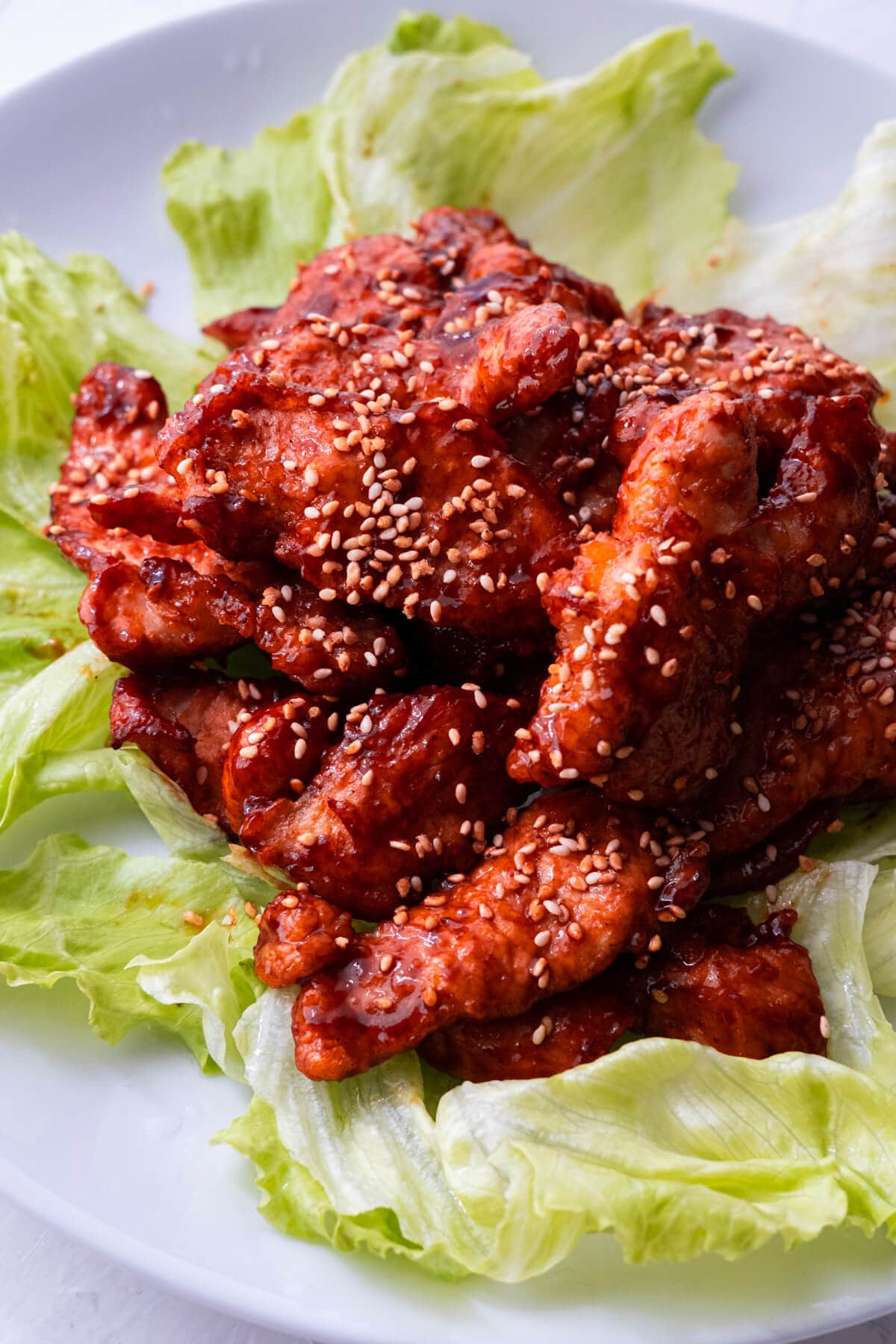
The heart of Peking pork lies in its sweet, tart, and smoky Peking Sauce. Picture tender and juicy fried pork, perfectly complemented by the sweet, tart, and smoky flavor of the sauce, making it an ideal dish to serve with steamed rice.
That’s why Peking Pork Chops are among the most popular items on the menus of Chinese restaurants today.
You can recreate this flavorful dish at home with my easy, tried and tested recipe, guaranteed to rival your favorite Chinese restaurants.
How To Make Peking Pork Chop
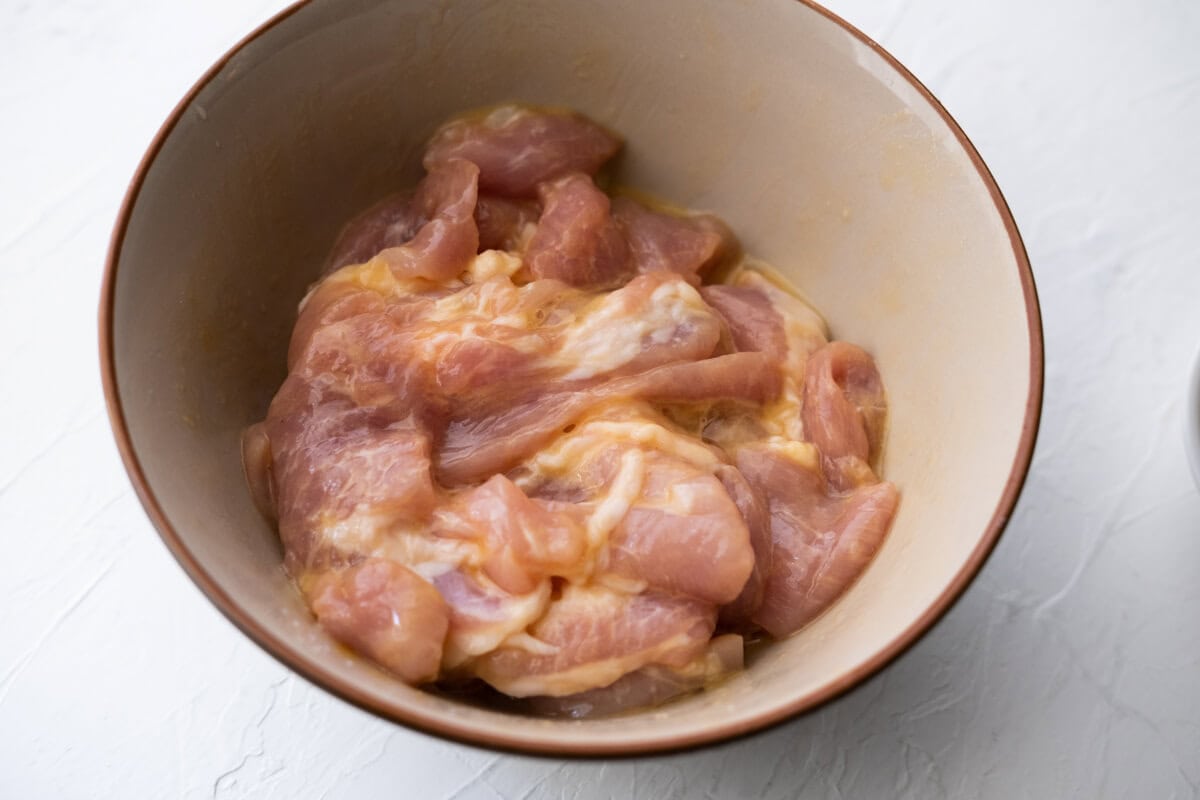
Step 1. Chinese Pork Chops Marinade: Pat dry the pork tenderloin with kitchen paper towels, pound the sliced pork with a mallet or the back of a Chinese cleaver until tender. (If using pork spare ribs, skip this process.) Set aside. In a bowl, mix the marinade ingredients, add the pork, mix well, and marinade for 30 minutes.
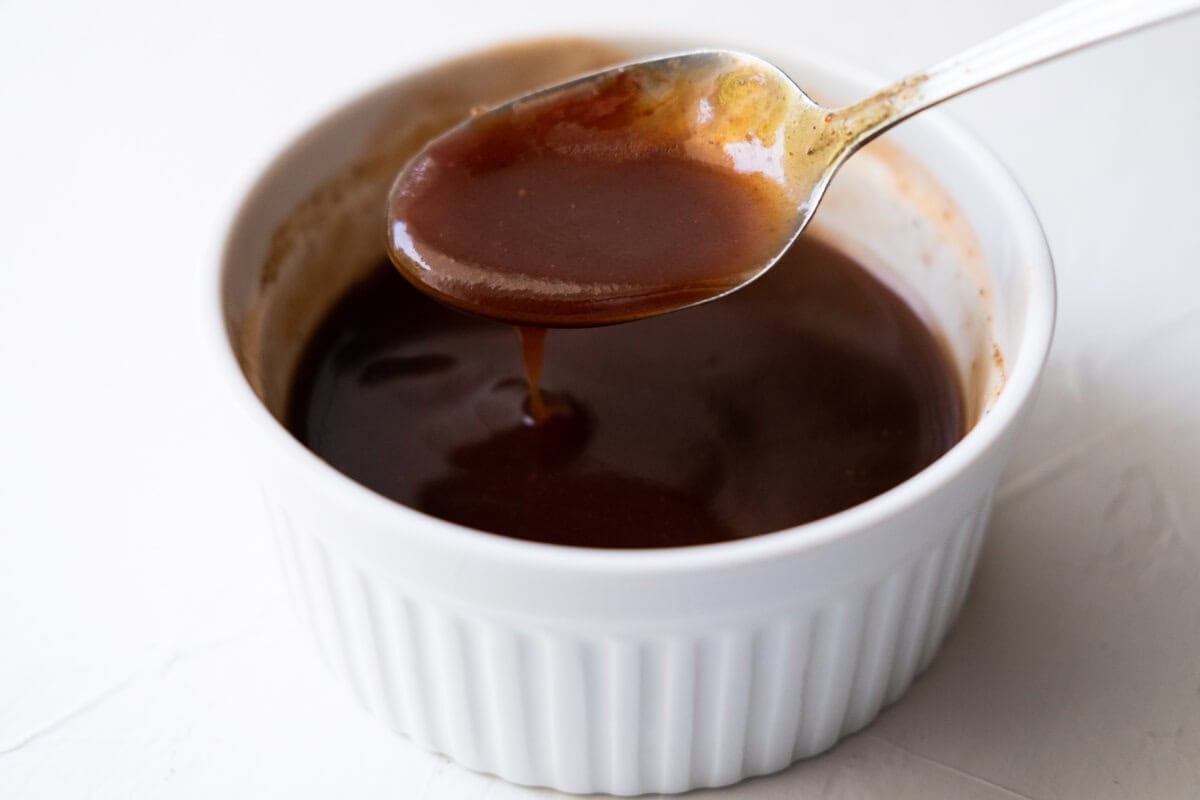
Step 2. Peking Sauce. In a separate bowl, mix the sauce ingredients. You may adjust the amount of sugar or other sauce ingredients according to your preference. Set the sauce mixture aside.
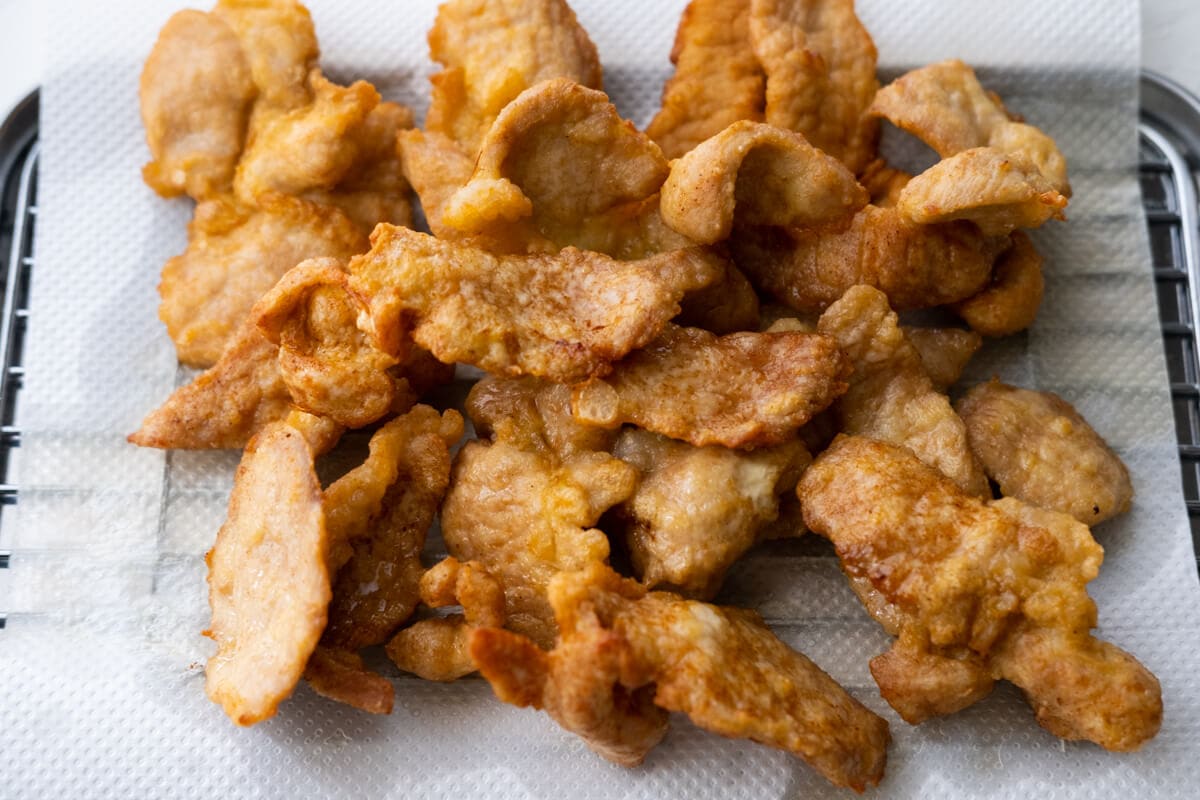
Step 3. Heat up a wok with enough oil for deep-frying. Fry for for 5 minutes, or until they turn golden brown and become slightly crispy. Remove them from the wok, drain the excess oil with paper towels, and set them aside.
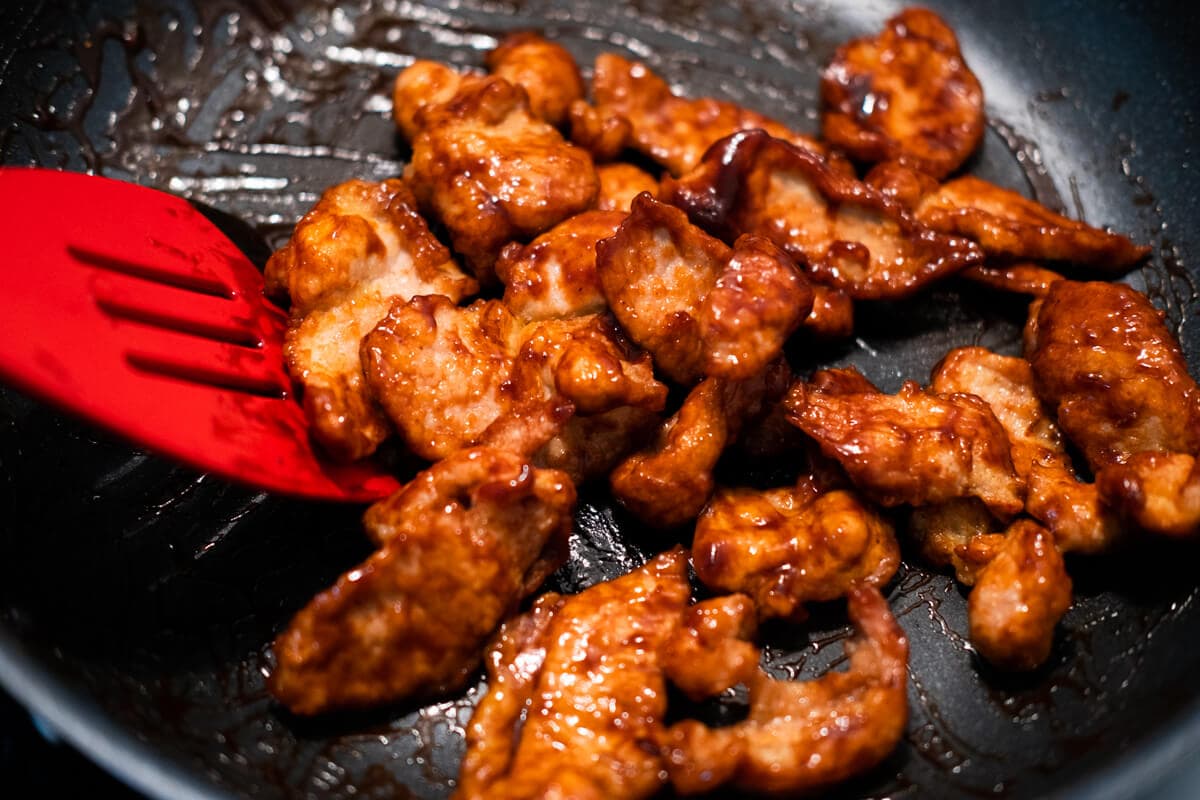
Step 4. Bring the sauce to a quick boil, then add the deep-fried pork chops, stirring until all the meat is well coated with sauce. Transfer the pork chops to a serving platter and sprinkle some toasted sesame seeds on top. Serve immediately with steamed rice.
Frequently Asked Questions
Pork loin or pork tenderloin are the best choice due to their tenderness.
Certainly! Simply mix the sauce ingredients together and store them in an airtight container in the fridge. It will stay fresh for up to two weeks.
This recipe is only 398 calories per serving.
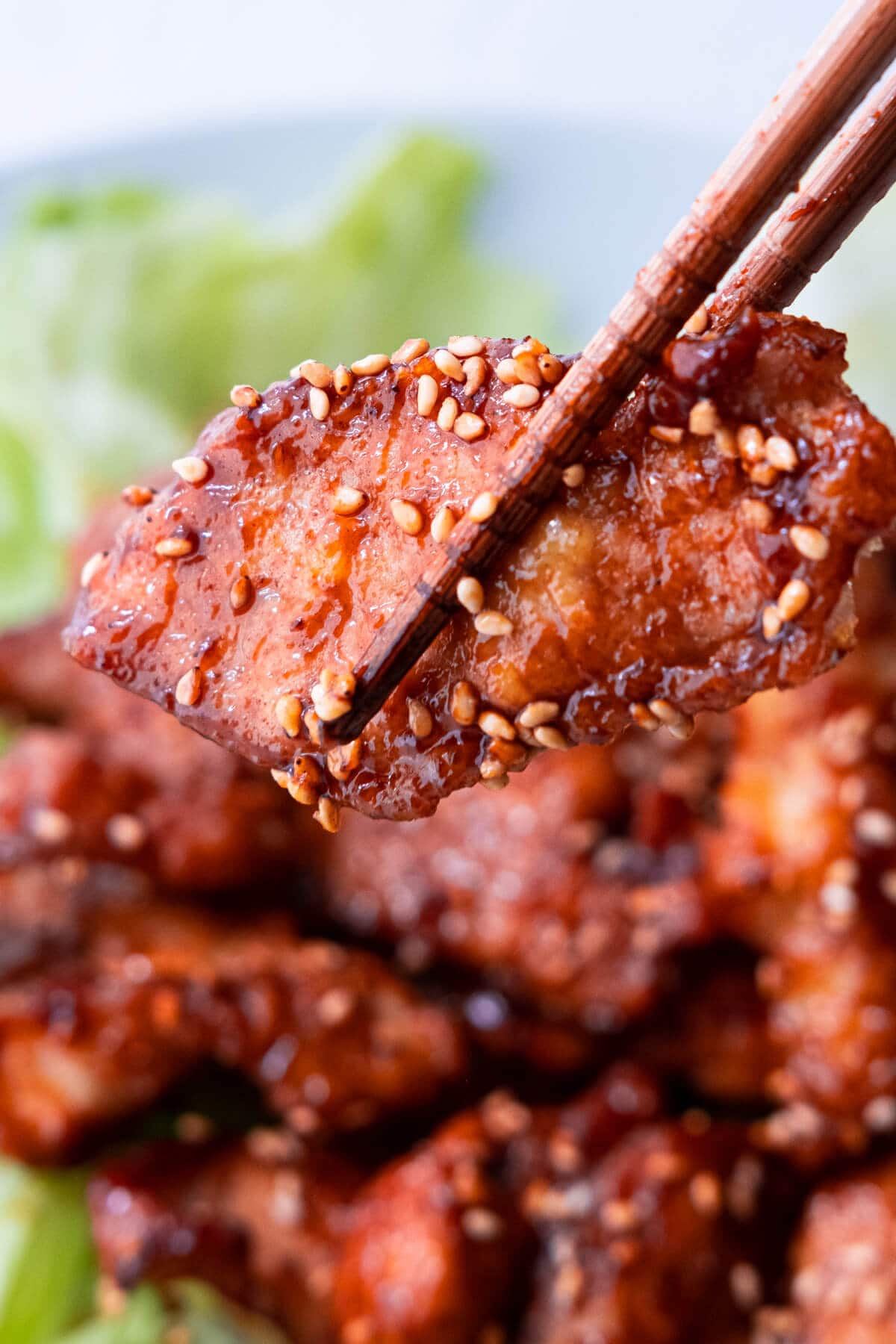
What To Serve With This Recipe
For a wholesome meal and easy weeknight dinner, I recommend the following recipes.
And to top it all off, the color of the sauce is red, which is the Chinese color for celebration, prosperity, and longevity.
I hope you enjoy this post as much as I do. If you try my recipe, please leave a comment and consider giving it a 5-star rating. For more easy and delicious recipes, explore my Recipe Index, and stay updated by subscribing to my newsletter and following me on Facebook, Pinterest, and Instagram for new updates.
Other Pork Recipes You Might Like
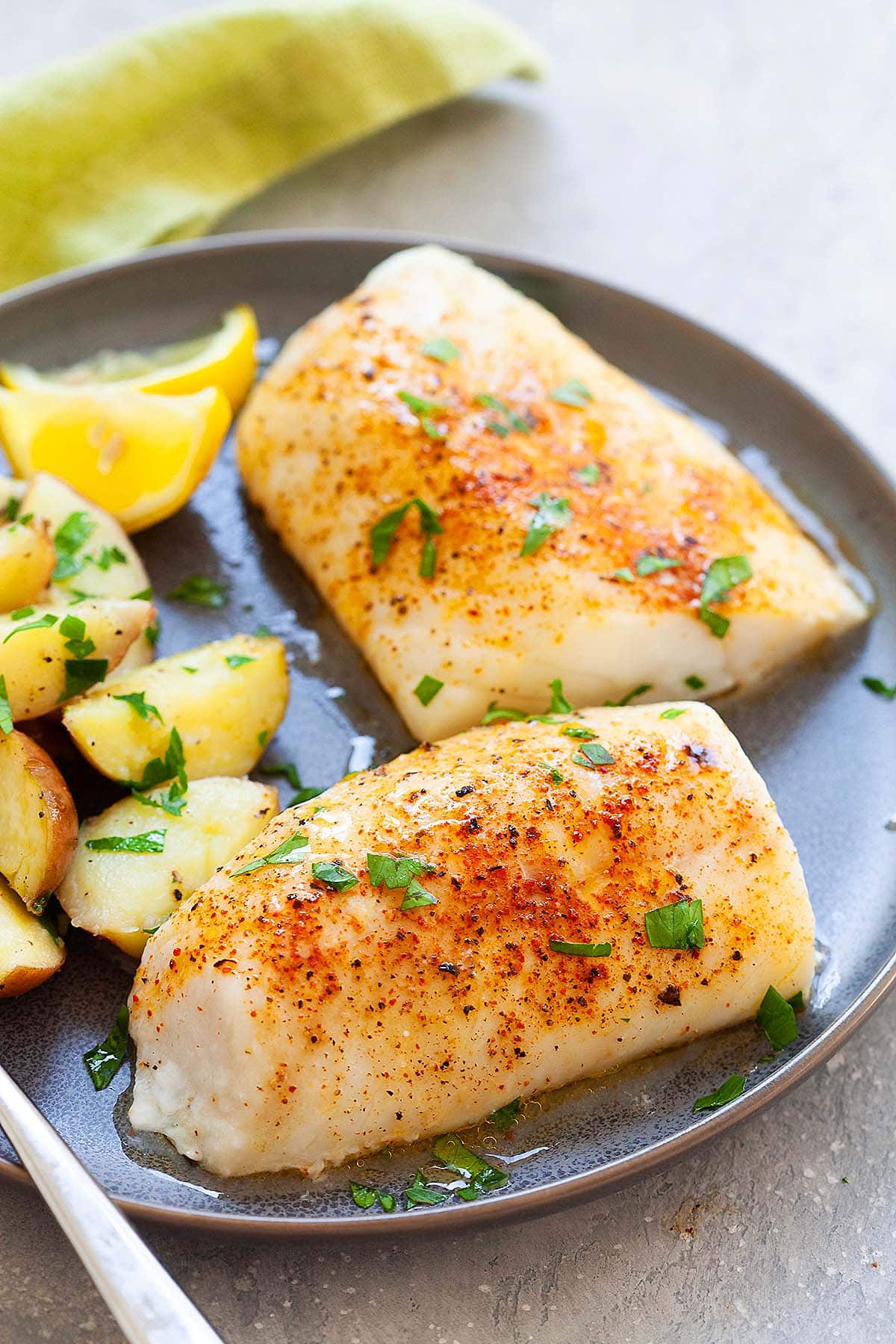
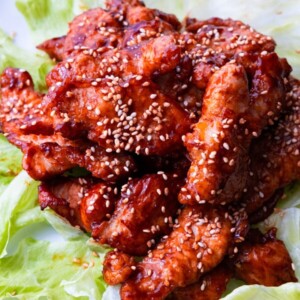
Peking Pork Chops
Ingredients
- 1 lb (500g) pork tenderloin , or pork spare ribs, cut into 1/2-inch (1-cm) thick slices
- oil , for deep frying, about 2 cups
- 1 teaspoon toasted sesame seeds, optional
Marinade:
- 1 egg
- 1 tablespoon cornstarch
- 1/2 teaspoon Shaoxing wine
- 1/2 teaspoon salt
Peking Sauce:
- 1 1/2 tablespoons tomato ketchup
- 1/2 tablespoon plum sauce
- 1/2 tablespoon chili sauce
- 1/4 teaspoon sweet bean sauce , or hoisin sauce
- 1 tablespoon Worcestershire Sauce
- 1 1/2 tablespoons black vinegar
- 1 1/2 tablespoons sugar
- 1 pinch Chinese five-spice powder, optional
- 2 tablespoons water
Instructions
- Chinese Pork Chops Marinade: Pat dry the pork tenderloin with kitchen paper towels, pound the sliced pork with a mallet or the back of a Chinese cleaver until tender. (If using pork spare ribs, skip this process.) Set aside. In a bowl, mix the marinade ingredients, add the pork, mix well, and marinade for 30 minutes.
- Peking Sauce. In a separate bowl, mix the sauce ingredients. You may adjust the amount of sugar or other sauce ingredients according to your preference. Set the sauce mixture aside.
- Heat up a wok with enough oil for deep-frying. Fry for for 5 minutes, or until they turn golden brown and become slightly crispy. Remove them from the wok, drain the excess oil with paper towels, and set them aside.
- Bring the sauce to a quick boil, then add the deep-fried pork chops, stirring until all the meat is well coated with sauce. Transfer the pork chops to a serving platter and sprinkle some toasted sesame seeds on top. Serve immediately with steamed rice.
Notes
- In Chinese restaurants in the United States, Peking Pork (jin du pai gu) is typically made with pork tenderloin, which is what I used in this recipe.
- Pork tenderloin or pork spare ribs – for meaty goodness, use pork tenderloin, or opt for pork spare ribs if you prefer a heartier bite.
- Shaoxing wine – you can substitute it with Chinese rice wine, Japanese cooking sake, or dry sherry. If you cannot consume wine, skip it altogether.
- Plum sauce – the secret ingredient that lends that iconic tartness to the sauce.
- Sweet bean sauce – use hoisin sauce if sweet bean sauce is not available.
- Worcestershire sauce – adds a punchy umami flavor to Peking sauce.
- Black vinegar – use Chinese Zhenjiang black vinegar.
Nutrition
Nutrition information is automatically calculated, so should only be used as an approximation.
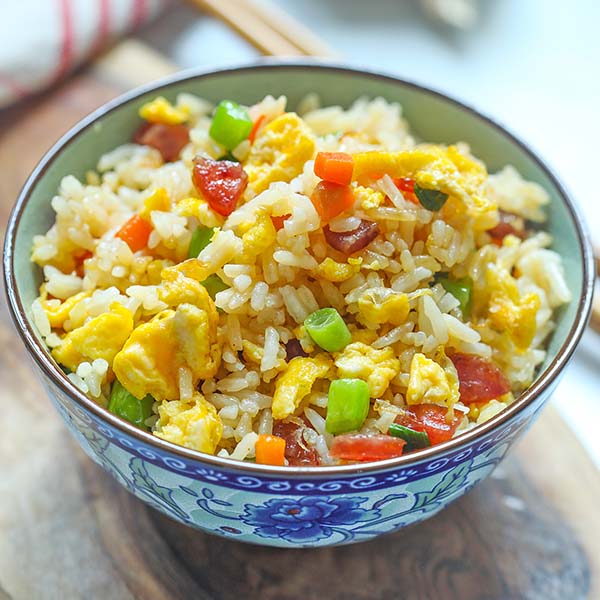
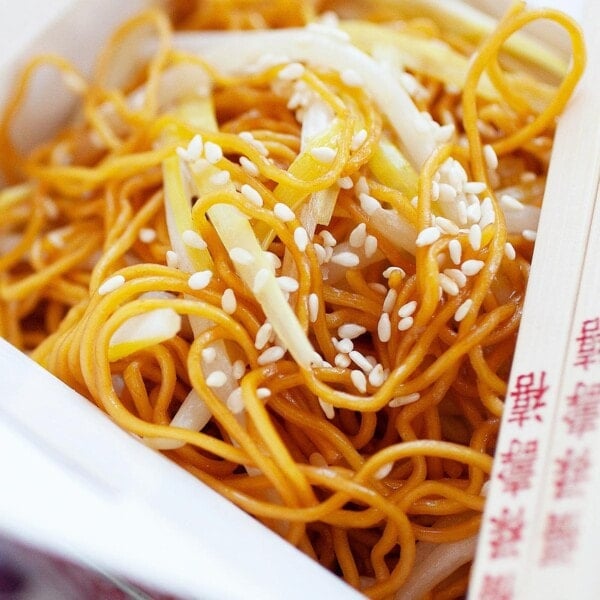
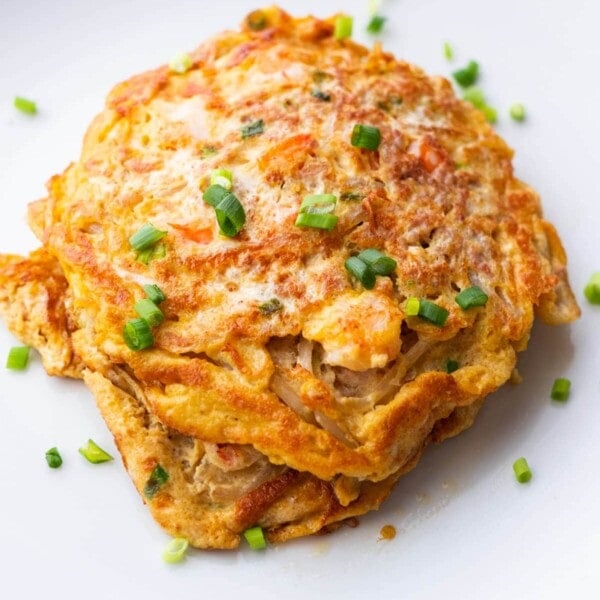
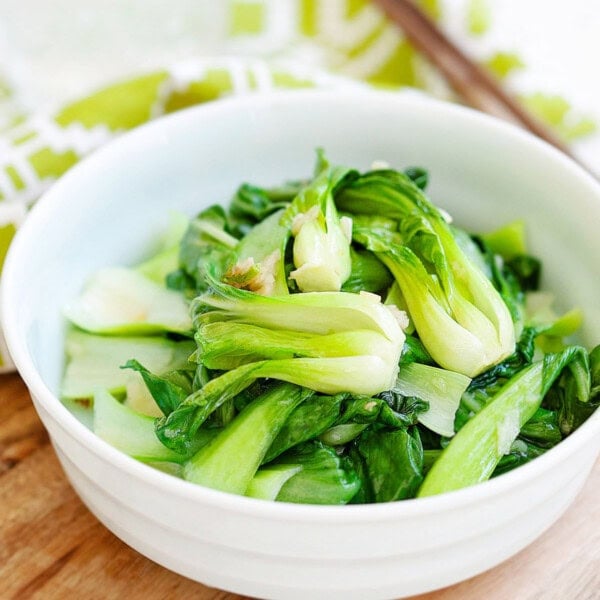






I can’t wait to try this. Quick question: instead of deep frying, will pan frying work?
Yes.
Hi Bee,
Would this sauce work for a full duck if I kept basting it throughout the cooking process?
Always wanted to attempt making a Peking duck! :)
Cheers,
Mark
Hi! Love your recipes! I cooked this twice already but both times the sauce was brownish and not reddish as per your photo. Could it be because i didn’t put any chili sauce? Thanks
Yes chili sauce makes the sauce red. :)
Hi Bee, my name is Dennis, I started cooking in the fire house when I was a firefighter and now that I am retired, I love cooking. I have been looking for good Chinese recipes for a long time. Many of the recipes that I have tried in the past, never tasted “great”. They were good, just not great, that is until I found yours. WOW, your Chinese recipes are the best ever. They are so good that I have a question for you.
Will you marry me :) I will build a kitchen for you that would be the best. The only problem would be that I’m sure I would get really fat, eating all of your great food, lol……
Thanks for the great recipes, I can’t wait to try more of them.
Sincerely
Dennis
I just tried this recipe with pork tenderloin and it came out hard and dry. Maybe I should use another cut of meat like the shoulder butt or something. Npt sure what went wrong, but every time I cook pork tenderloin, it never comes out tender. Any suggestions ?
Pork tenderloin in it’s nature is a soft cut of meat, you either cooked it to long or the oil was too hot, if it is tenderised try cooking it for a minute on high heat, remove for 2 mins and retry for another minute and a half. This sauce is great due to it being robust and measurements can be aligned with the cooks palate without too much worry.
Hi Bee, thank you so much for sharing your recipes.
why are there so many suaces involved that aren’t even chinese from origin? E.g. Worshestershire sauce. Isn’t there a less complicated, straight forward way to add the desireable taste?
Chinese chefs use the sauce to make the sauce extra savory, especially for this dish.
Yum. Yum. Yum. The yummiest. Kicks the local Chinese restaurant’s butt. Will be making this regularly. Recommend.
What! No baking soda marinade for tenderness?
Baking soda works the best on chicken. :)
Fabulous. The picture looked so tempting I tried these as part of a progressive-feast sort of thing tonight for our 28th anniversary — and was not disappointed. Cheated a little by using my ancient but dependable Fry Daddy instead of my thin-walled cast-iron wok; high-altitude deep-frying (Albuquerque, NM) just seems to go much faster and smoother that way: 3 minutes per batch of 3, bang-bang-bang, and into the sauce and over the rice. Intensely satisfying flavor, incredibly tender and succulent. Ay, caramba — thanks!